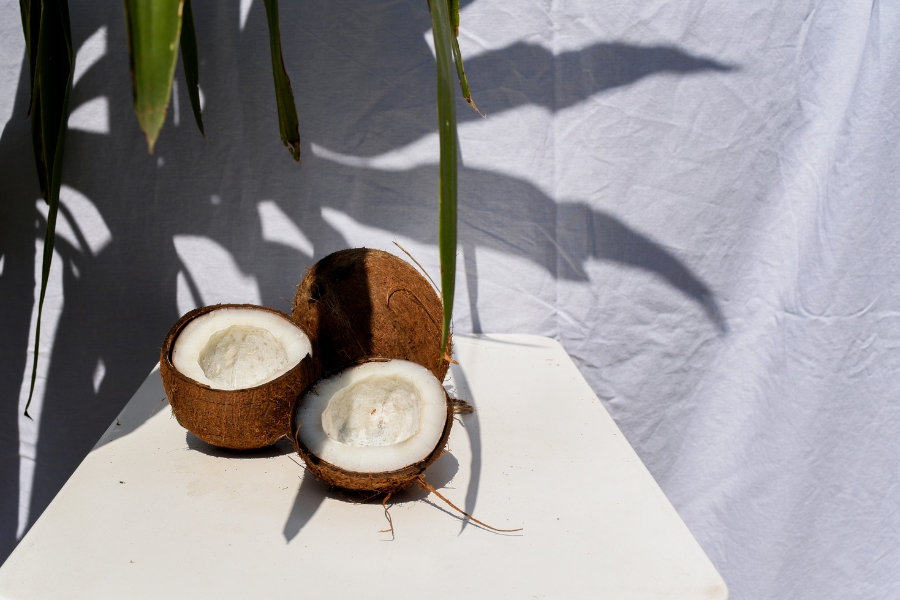Coconuts! They’re more than just a cocktail served on the beach. From their native palm trees, which wave in the breeze all around the globe, coconuts have made their way into our kitchens, bathrooms, beauty regimes, and medicine closets. But what really accounts for the tropical fruit’s popularity?
Table of Contents
Well, dear readers, the humble coconut is packed with surprises. The advantages of coconuts extend far beyond their wonderful flavor and include everything from skin nourishment to gastrointestinal support. Here, we’ll look at ten of coconut’s uses and benefits that, if you’re not already a convert, might change your mind. So grab coconut water, settle in, and let’s dive into the world of coconuts!
Coconut Oil and Seizures
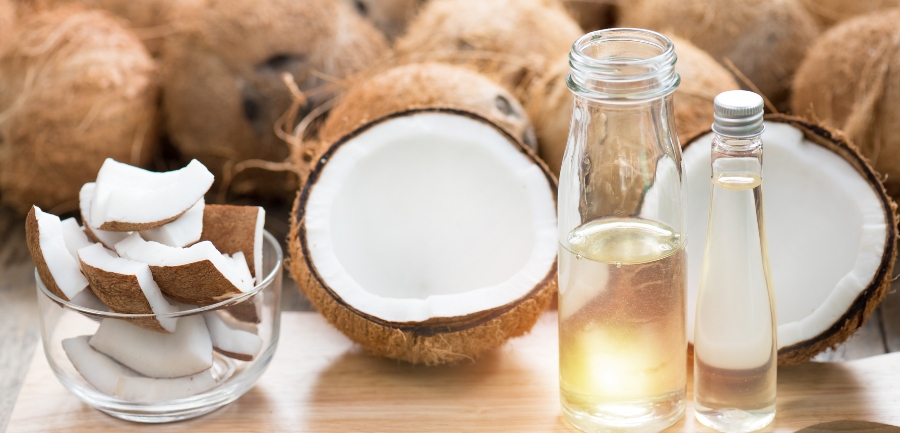
The link between coconut oil and epilepsy may appear out of the ordinary at first, but there is more to the story than meets the eye. Now, let’s get down to brass tacks.
Understanding the Connection
Research into coconut oil’s medium-chain triglycerides (MCTs) has yielded promising results in the field of neurology. Perhaps you’re asking what relevance this has to fit.
Seizures, it is believed, result from a disruption in the brain’s energy metabolism. MCTs, which are found in coconut oil, can be broken down into fuel molecules called ketones. The brain’s ability to use these ketones as an alternative energy source may allow for more stable neuronal activity.
Several studies found that people whose diets included coconut oil had fewer seizures. In no way is this designed to supplant standard medical treatment, but rather to broaden the scope of the possibilities and optimism it offers.
How to Use Coconut Oil for Seizures
If you’re considering using coconut oil to manage seizures, it’s essential to approach it with caution and awareness. Here’s how:
- Consult with a Healthcare Provider: Before making any dietary changes, speak with a healthcare provider who understands your specific situation.
- Choose High-Quality Coconut Oil: Look for virgin or unrefined coconut oil, as it retains the beneficial MCTs.
- Start Slowly: Introduce coconut oil gradually into your diet to monitor how your body responds.
- Monitor and Adjust: Keep track of any changes in seizure activity and work closely with your healthcare provider to make necessary adjustments.
Remember, coconut oil is not a cure or a standalone treatment for seizures, but it may be a valuable complementary approach. Always follow professional medical advice and use coconut oil as part of a broader treatment plan.
Coconut Essential Oil Benefits
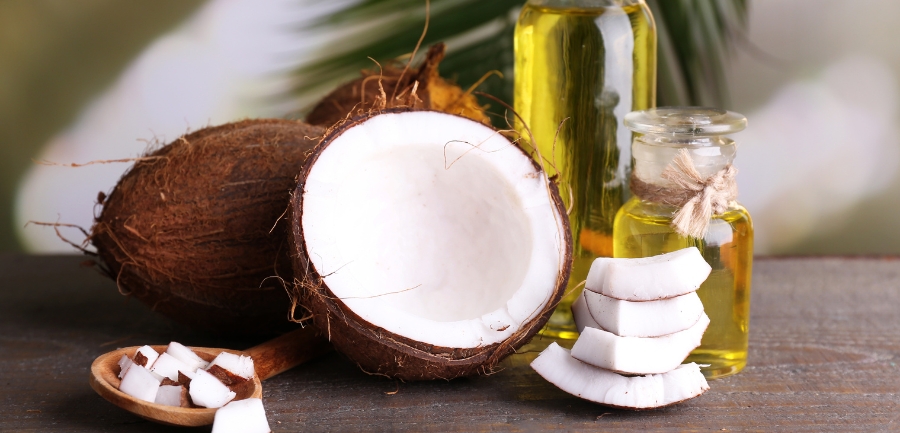
Think coconut oil is just for cooking? Think again! This exotic find has many positive effects on health and well-being. Why don’t we explore some of these fantastic benefits right now?
Organic Coconut and Its Advantages
Health Benefits of Organic Coconut: Organic coconut products, free from pesticides and artificial chemicals, offer a purer taste and nutritional profile. Vitamin- and mineral-rich organic coconut oil is excellent for your immune system, digestive tract, skin, and hair.
Environmental Impact: Choosing organic coconut also means supporting sustainable farming practices. The land, water, and animal populations all benefit from organic farming practices. Choosing organic coconut products is healthy for your health and the environment.
Coconut Oil on an Empty Stomach in the Morning
Starting your day with a spoonful of coconut oil might sound unconventional, but it’s a practice embraced by many health enthusiasts. Here’s why:
- Boosts Metabolism: Coconut oil’s MCTs can kickstart your metabolism, helping you burn more calories throughout the day.
- Enhances Digestion: Taken on an empty stomach, coconut oil can aid digestion, reducing bloating and discomfort.
- Improves Oral Health: Swishing coconut oil in your mouth, a practice known as oil pulling, can reduce bacteria and promote healthier gums and teeth.
- Energizes Your Morning: The quick energy from coconut oil’s fats can give you a gentle and sustained energy boost, without the crash of sugary breakfasts.
Whether you’re adding it to your morning coffee or taking a spoonful straight, coconut oil on an empty stomach can be a nourishing way to start your day.
Coconut Oil for Acid Reflux

Has acid reflux got you down? You might be surprised to learn that coconut oil could come to your rescue. Let’s explore how this tropical oil can be a friend to your tummy.
How Coconut Oil Helps with Acid Reflux
Mechanism of Action: Coconut oil’s soothing properties aren’t just skin-deep; they can calm your digestive system too. The anti-inflammatory effects of coconut oil can help soothe the lining of the esophagus, reducing the irritation caused by stomach acid. Its healthy fats also aid in digestion, potentially reducing the occurrence of acid reflux.
Supporting Evidence: While more research is needed, some studies and anecdotal evidence suggest that incorporating coconut oil into your diet may alleviate symptoms of acid reflux. Many individuals have reported relief after making this simple dietary change. As always, it’s best to consult with a healthcare provider to determine if this approach is right for you.
Can You Eat Raw Coconut Flour?
Raw coconut flour is gaining popularity in gluten-free and paleo diets, but is it suitable for those dealing with acid reflux? Let’s weigh the pros and cons.
Pros:
- High in Fiber: Coconut flour is rich in dietary fiber, which can aid digestion.
- Gluten-Free: A great alternative for those with gluten sensitivities.
Cons:
- May Cause Bloating in Some: For some individuals, the high fiber content may lead to bloating or discomfort.
How It Relates to Acid Reflux: Coconut flour’s high fiber content can support healthy digestion, potentially reducing the risk of acid reflux. However, individual responses may vary, so it’s wise to introduce them gradually and observe how your body reacts.
Average Weight of a Coconut
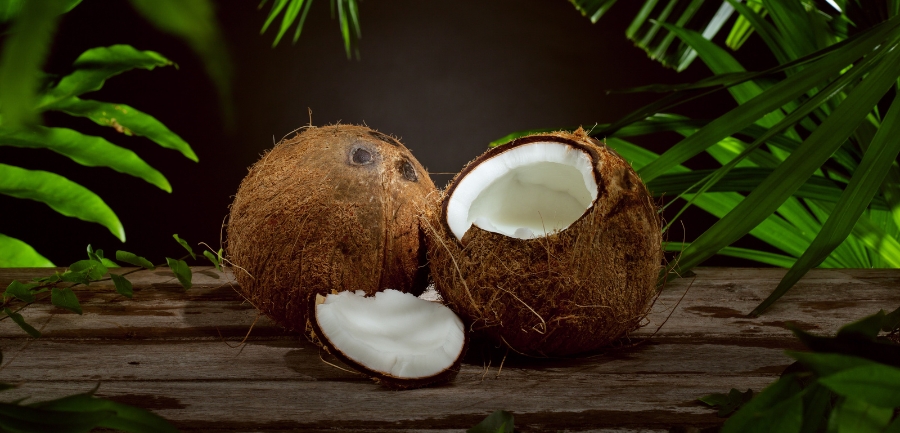
Ever picked up a coconut and wondered about its weight? While the average weight of a coconut might vary, typically ranging from 3 to 5 pounds, what’s inside is where the real magic happens. Let’s crack open the coconut and explore its versatile uses and fascinating parts.
Grated Coconut and Fresh Grated Coconut Uses
Culinary Applications: Grated coconut, whether fresh or dried, is a culinary superstar. It’s great for giving salads, desserts, and curries a tropical twist. Grated coconut is a staple ingredient for many cooks, whether they’re making coconut macaroons or a luxurious Thai curry.
Health Benefits: But it’s not just about taste! Coconut gratings are a great source of healthful fats, as well as fiber and vitamins. It helps with digestion, gives you more energy, and is good for your heart. So next time you sprinkle some on your dish, know that you’re adding a touch of wellness too!
Coconut Parts and Their Functions
Coconuts are more than just a tasty treat; they’re a marvel of nature. Let’s explore the different parts:
- Husk: The rough exterior that protects the inner seed. It’s used in making ropes, mats, and even fuel.
- Shell: The hard layer beneath the husk, is perfect for crafting bowls, utensils, and decorative items.
- Meat: The delicious and nutritious part we eat, used in cooking, oil production, and more.
- Water: Refreshing and hydrating, coconut water is a natural electrolyte-rich drink.
- Flower: Did you know coconuts have flowers? They’re used in various cultural ceremonies and rituals.
One of the most useful and versatile fruits is the coconut since every portion of it may be used for something else.
What Is a Coconut Classified As?
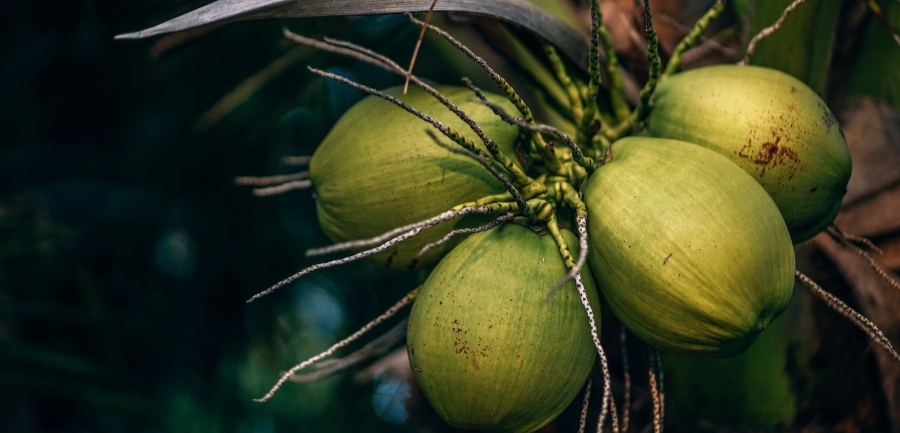
The coconut is a beloved tropical fruit, but have you ever stopped to wonder what it’s classified as in the botanical world? Let’s unravel this nutty mystery.
Botanical Classification
Scientific Explanation: In the botanical world, the coconut is a bit of a chameleon. It’s classified as a fruit, a nut, and a seed! Here’s how:
- Fruit: The coconut is a type of drupe, a fruit with a hard stony covering enclosing the seed.
- Nut: Though not a true nut, it’s often referred to as one because of its hard shell.
- Seed: The coconut is the seed of the coconut palm tree, capable of sprouting a new tree.
So, whether you call it a fruit, a nut, or a seed, you’re right! The coconut’s unique classification is a testament to its versatility and complexity.
Unsweetened Coconut Flakes Nutrition
Unsweetened coconut flakes are a nutritional powerhouse and not just a nice topping. Here’s what you’ll find in unsweetened coconut flakes:
- Fiber: Great for digestion and keeping you full.
- Healthy Fats: Supports heart health and provides sustained energy.
- Vitamins and Minerals: Rich in manganese, copper, selenium, and more.
- Low in Sugar: Unsweetened flakes offer all the flavor without added sugars.
Unsweetened coconut flakes are a delightful and healthful addition to any meal, whether you sprinkle them on your morning porridge or a smoothie bowl.
Facts on Coconut

Coconuts are more than just a tropical delight; they’re a source of fascination and wellness. Let’s uncover some amazing facts and important benefits that make coconuts truly extraordinary.
10 Amazing Facts
- World Travelers: Coconuts can float on water, allowing them to travel and germinate on distant shores.
- A Symbol of Prosperity: In many cultures, coconuts symbolize prosperity and good fortune.
- A Tree of Life: Every part of the coconut tree is usable, earning it the nickname “Tree of Life.”
- A Long Lifespan: Coconut palms can live up to 100 years and produce fruits for 80 years.
- A Natural Fire Starter: The husk fibers, known as coir, can be used to start fires.
- A Source of Alternative Milk: Coconut milk is a popular dairy-free alternative.
- A Home to Critters: Some small animals, like crabs, use empty coconut shells as homes.
- A Natural Sweetener: Coconut sugar, made from sap, is a natural sweetener.
- A Beauty Secret: Coconut oil is a popular ingredient in natural beauty products.
- A Historical Mystery: Coconuts’ origin is still debated, with evidence of them in both the Pacific and Indian Oceans
10 Important Benefits
- Heart Health: Coconuts contain healthy fats that may support heart health.
- Weight Management: The MCTs in coconut oil can aid in weight loss efforts.
- Skin and Hair Care: Coconut oil nourishes and moisturizes skin and hair.
- Digestive Aid: Coconuts are rich in fiber, promoting healthy digestion.
- Hydration: Coconut water is a natural electrolyte-rich hydrator.
- Immune Support: Coconuts have antiviral and antibacterial properties.
- Brain Function: The ketones from coconut oil may enhance brain function.
- Blood Sugar Control: Coconuts may help regulate blood sugar levels.
- Bone Health: Coconuts are rich in minerals that support bone health.
- Anti-Stress: Coconut oil’s soothing properties may reduce stress and anxiety.
To Wrap It Up
The ten advantages of coconut we have discussed are absolutely impressive, ranging from improved cardiovascular health to increased cognitive ability. Coconut is a tropical gem that can be enjoyed in countless ways: by consuming a teaspoon of coconut oil in the morning, by drinking fresh coconut water after a workout, or by putting grated coconut into your favorite recipes.
Why not incorporate coconuts into your regular routine? Make use of the coconut’s many uses, delicious flavor, and health benefits to bring a little bit of the tropics into your life.
FAQs
What are the benefits of coconuts?
Coconuts are good for your heart, digestive tract, skin, hair, temperature, immunity, and weight, among other things.
Is eating raw coconut good for health?
Raw coconut is good for you because it contains fiber, healthy fats, and important nutrients that all contribute to improved digestion, cardiovascular health, and general well-being.
Is it good to eat coconut every day?
Eating coconut daily can provide essential nutrients, healthy fats, and fiber, supporting overall wellness, though moderation is key to balance calorie intake.
What does coconut do to the brain?
Medium-chain triglycerides (MCTs), which are present in coconut oil, can be broken down into ketones, which can then be used as fuel by the brain.

